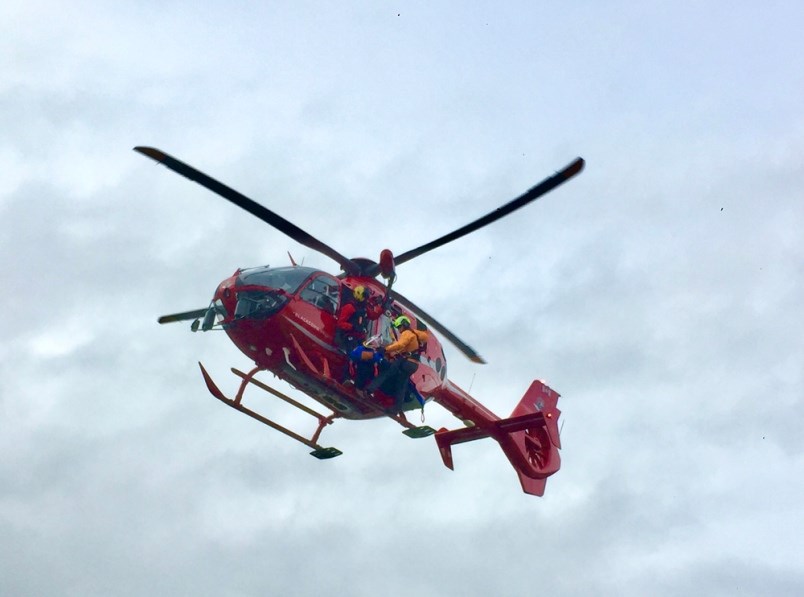Squamish Search and Rescue — along with rescuers across the province — are gearing up for what’s anticipated to be an unusually busy winter.
With COVID-19 numbers climbing and B.C. issuing partial lockdown almost two weeks ago, many are bracing themselves for limited indoor entertainment options this season.
As a result, rescue crews around the province are expecting many people to continue venturing outside and into the backcountry, creating the possibility of a deluge of rescue calls.
The summer was particularly busy this year, with rescuers recording multiple callouts each weekend. Areas that previously weren’t hotspots for activity became flooded with recreationalists.
With months to go, Squamish Search and Rescue has already broken the record for most callouts in a year, recording 106 calls as of Oct. 13.
The previous all-time high was 104 calls throughout the entire year of 2018.
As of Nov. 17, SAR has received 114 callouts.
Search manager B.J. Chute said that calls seem to have levelled off for the time-being.
Several high-profile searches took up most of their time in the last month or so, he said. This included searches for Jordan Naterer, a missing hiker in Manning Park; for Peter Oleski and 21-year-old River Leo, a father and son who were found dead in the Pemberton area; and, a search for Darcy Wild, a missing Vancouver man last seen in Squamish.
However, local crews are anticipating the possibility of an exceptionally busy snow season.
“I think the overall feeling is that our winter will be busier than winters in the past,” said Chute.
Crews are getting ready to deploy to what they believe will be high-traffic spots this winter.
“I think it’s unknown as to how parks are going to react to any potential COVID response,” said Chute. “But we are looking and we are mapping areas that we know are typically busy areas, such as Garibaldi Park, Red Heather, Elfin, Brohm Ridge, for example. Places that are relatively easy for people to get to and places that are relatively sought after by people.”
But rescuers can only do so much — it’s up to individuals to be extra prepared, he said, as winter rescues require an extra amount of technical know-how to pull off.
Extra demand on rescue services could mean there will be backlogs.
Crews may be so occupied that some people may have to wait for a while before search parties find them.
Weather-appropriate clothing and headlamps are key, Chute said, as rescues often result when the light dims and recreationalists lose their bearings.
Just as important as the right gear is the right training, he added.
People should know how to use their equipment, be competent at their activities, know self-rescue skills and be educated in proper winter route-finding.
“The emphasis on people being prepared — more now than ever — I think, needs to be heard,” Chute said.




